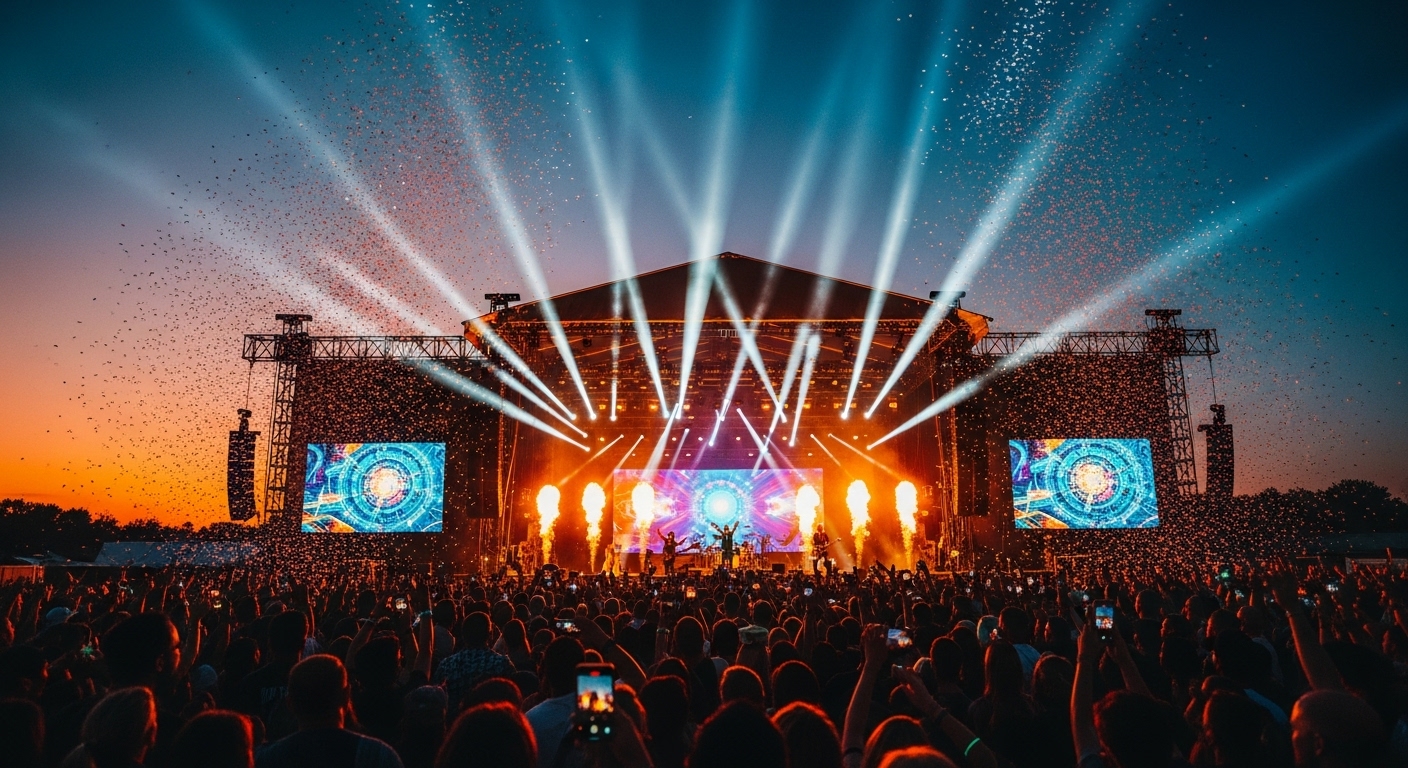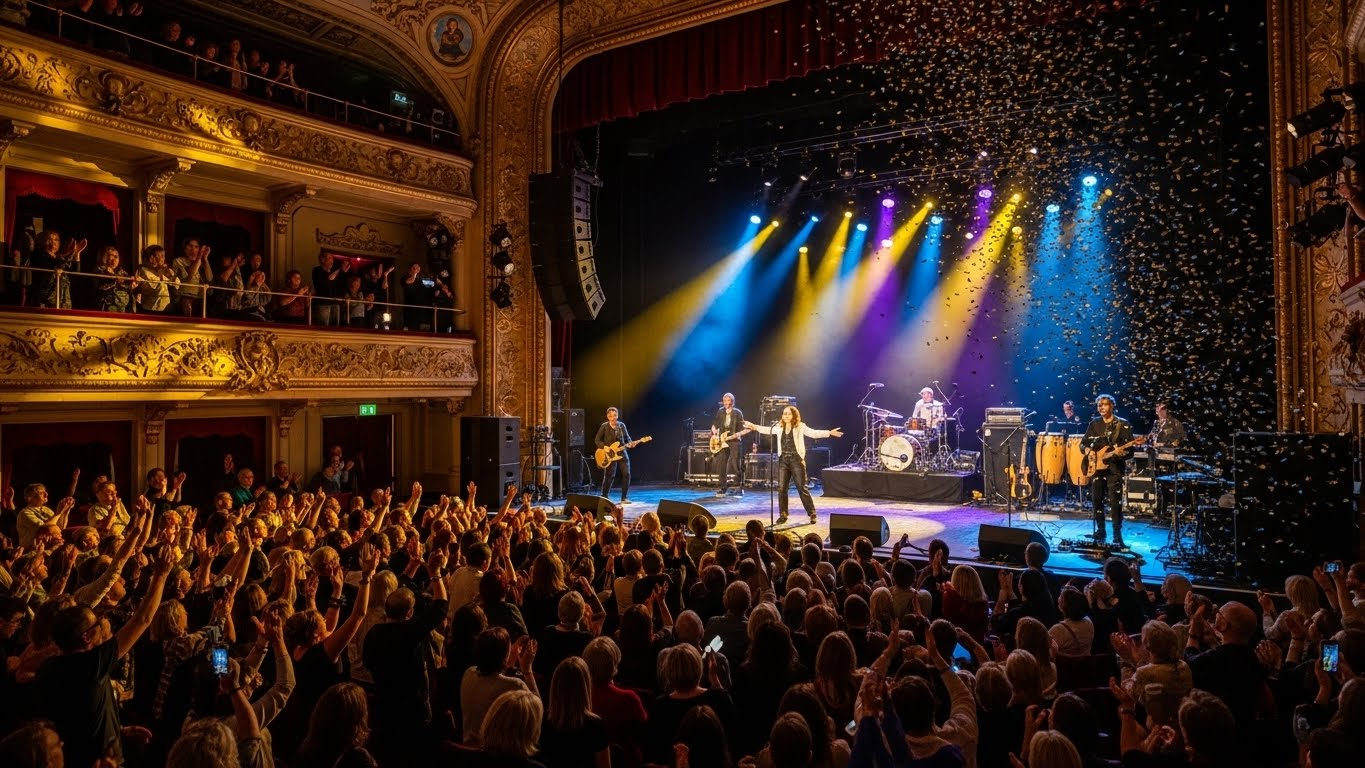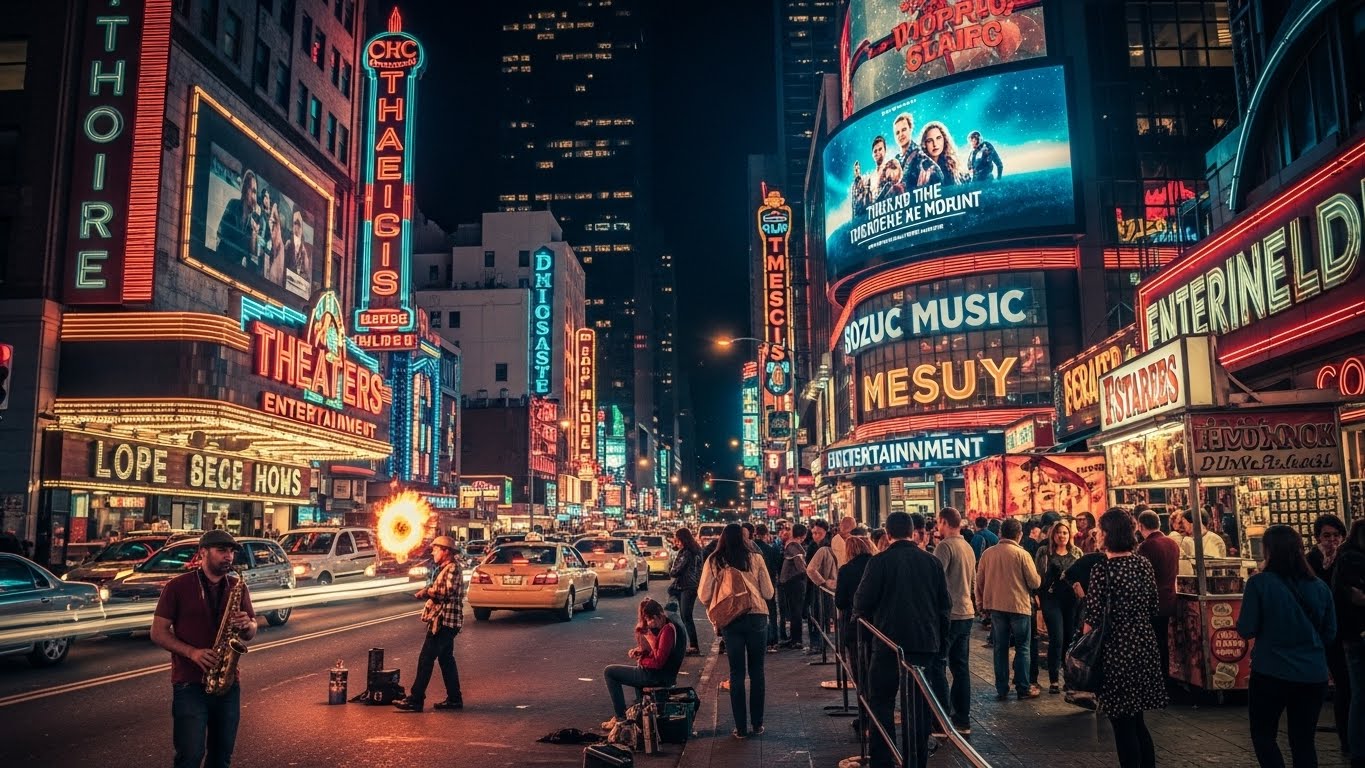Entertainment has always been the heartbeat of human culture, a force that transcends generations, languages, and borders. From ancient storytelling around campfires to digital streaming platforms available at our fingertips, entertainment defines how we connect, express, and experience the world. It is the mirror of society, reflecting our dreams, struggles, and emotions. Every era produces its own form of entertainment that not only captivates audiences but also reshapes how people live, communicate, and think. In the 21st century, the entertainment industry has become a universe of infinite possibilities, blending art, technology, and human creativity into something that touches every aspect of modern life.
The Origins of Entertainment
Long before the screens and soundtracks of today, entertainment was born from the most basic human desire—to share stories. In ancient times, people gathered around fires to listen to tales of gods, heroes, and adventures. These oral traditions were more than just stories; they were lessons, celebrations, and connections between generations. Music followed, with drums, flutes, and chants filling the air in rituals and festivities. Theater and dance soon emerged as more structured forms of expression, giving birth to the concept of performance.
From the amphitheaters of ancient Greece to the court jesters of medieval Europe, entertainment has always adapted to cultural and social contexts. What began as a communal activity evolved into art forms that combined storytelling with music, movement, and emotion. It became a reflection of human creativity and an essential part of how societies communicated values, beliefs, and identity.
The Golden Age of Cinema
The invention of film in the late 19th century revolutionized entertainment forever. What started as silent black-and-white motion pictures grew into one of the most powerful art forms in history. The early pioneers of cinema discovered that moving images could convey emotion, narrative, and imagination in ways words alone could not. The transition from silent films to sound marked the beginning of Hollywood’s golden age, where stars like Charlie Chaplin, Audrey Hepburn, and Humphrey Bogart became global icons.
Movies offered escape, inspiration, and connection. They brought stories from all over the world to audiences who had never left their hometowns. During the mid-20th century, cinema became a shared cultural experience. Families and friends filled theaters to witness epic adventures, heartfelt dramas, and timeless romances. Each generation had its defining films—those that captured the spirit of their time and left an indelible mark on culture.
Today, film continues to evolve. Special effects, digital cinematography, and streaming services have transformed not just how movies are made but also how they are watched. Yet, the essence remains the same—a story told through sight and sound that can move hearts, challenge minds, and ignite imaginations.
The Power of Music in Entertainment
Music is one of humanity’s oldest and most universal forms of entertainment. Its ability to evoke emotion and create atmosphere is unparalleled. Whether it is a live concert, a quiet melody in a film, or a spontaneous street performance, music unites people in ways that few other mediums can.
The evolution of music mirrors technological and cultural shifts. From vinyl records to digital streaming, each era introduced new ways for people to experience and share sound. The rock ‘n’ roll explosion of the 1950s redefined youth culture, the 1980s brought pop icons whose influence still echoes today, and the 21st century has seen the rise of digital artists who create and distribute their music independently.
Beyond entertainment, music also serves as a language of emotion and identity. It can express love, rebellion, joy, or sorrow without needing translation. In every corner of the world, people turn to music for comfort, celebration, and connection. Its power lies in its simplicity—just rhythm and melody, yet capable of touching the deepest parts of the human soul.
The Digital Revolution and Streaming Culture
The digital revolution has completely transformed the entertainment landscape. Gone are the days when people relied solely on movie theaters or television schedules to enjoy their favorite shows. Today, entertainment is on demand. Streaming platforms provide instant access to movies, series, documentaries, and music anytime, anywhere. This shift has democratized entertainment, giving creators more freedom and audiences more choice.
With this new accessibility, storytelling has become more diverse and global. Viewers can watch a Korean drama, a Spanish thriller, or an American sitcom all in one sitting. Musicians can release a song and reach millions within hours. Content creators on social media platforms have become celebrities in their own right, building loyal fanbases without the traditional structures of Hollywood or major record labels.
This era of streaming and social media has also blurred the lines between creator and consumer. Fans participate directly in entertainment by sharing opinions, remixing content, and even collaborating with artists. The result is a more interactive, inclusive, and ever-evolving entertainment culture.
The Gaming Industry: A New Dimension of Entertainment
Video games have evolved from niche hobbies into one of the most powerful forms of entertainment in the world. What began with simple arcade games has grown into a multibillion-dollar industry that combines storytelling, art, and technology. Games are no longer just about competition; they are immersive experiences that allow players to explore new worlds, make choices, and shape narratives.
Modern gaming is cinematic, emotional, and deeply interactive. Story-driven titles rival movies in terms of depth and character development. Multiplayer online games connect millions across the globe, fostering communities that transcend geography and language. Esports, competitive gaming at a professional level, has even become a global phenomenon, attracting audiences comparable to major sporting events.
What makes gaming unique is its interactivity. Players do not just watch or listen—they participate. They make decisions, influence outcomes, and become part of the story. This level of engagement has redefined what entertainment can be, making it one of the most dynamic and creative fields in modern culture.
The Influence of Social Media on Entertainment
Social media has completely changed how entertainment is created, consumed, and shared. Platforms like Instagram, TikTok, and YouTube have turned everyday individuals into global entertainers. Viral videos, memes, and trends spread faster than traditional media ever could. Entertainment is no longer confined to studios or production houses; it thrives in the hands of millions of creators worldwide.
This new landscape has given rise to influencers—individuals who blend entertainment, marketing, and personal storytelling. They create content that feels authentic and immediate, connecting directly with their audiences. The result is a more personal and participatory form of entertainment where viewers are not just spectators but active participants in the narrative.
Social media has also transformed how artists and filmmakers promote their work. Teasers, behind-the-scenes clips, and live interactions allow fans to engage with creators in real time. This level of interaction has reshaped the relationship between audience and artist, making entertainment a two-way street.
The Art of Storytelling in Modern Entertainment
Despite all the technological advancements, the core of entertainment remains storytelling. Whether it’s a movie, a song, a book, or a game, the story is what captivates people. Stories give meaning to experience, turning abstract emotions into relatable narratives. They allow us to see the world through different perspectives and imagine lives beyond our own.
Modern entertainment offers more ways than ever to tell stories. Film combines visuals and sound to create emotion. Music condenses a lifetime of feeling into a few minutes. Video games transform audiences into participants. Even social media tells stories—short, fragmented, yet deeply personal.
In a world saturated with content, authenticity has become key. Audiences crave stories that feel real, that reflect their own experiences or open their eyes to new ones. Entertainment that connects emotionally, regardless of format, remains timeless.
The Impact of Technology on Creativity
Technology has not only changed how we consume entertainment but also how it is created. Filmmakers use advanced CGI and virtual production techniques to build worlds that defy imagination. Musicians produce entire albums from home studios using digital tools. Writers use AI assistance to enhance creativity and explore new ideas.
Virtual reality and augmented reality have opened entirely new dimensions of entertainment. These technologies allow users to step inside stories, exploring them from within rather than observing from afar. Live concerts, museum tours, and theater performances are now being reimagined in immersive formats that combine art with interactivity.
Technology has made creation more accessible than ever. A single individual with a smartphone can produce, edit, and distribute content to millions. This democratization of creativity has empowered countless new voices, ensuring that entertainment continues to evolve with diversity and innovation.
The Role of Culture and Diversity in Modern Entertainment
The global nature of modern entertainment has made cultural exchange a vital part of creativity. Audiences today seek stories that reflect the richness and diversity of the world. Representation matters, not just as a trend but as an acknowledgment of the many voices that make up human experience.
International cinema, music, and television have gained massive popularity, breaking linguistic and cultural barriers. The rise of global streaming platforms has allowed people to explore entertainment from every corner of the planet. From Afrobeat rhythms to Asian dramas, the world’s cultures have become part of the mainstream entertainment conversation.
This inclusivity not only enriches creativity but also builds understanding. Entertainment has the power to bridge divides, challenge stereotypes, and foster empathy among people who might otherwise never cross paths.
The Future of Entertainment
The future of entertainment will be defined by personalization, immersion, and interactivity. Artificial intelligence will recommend content tailored precisely to individual preferences. Virtual and augmented reality will merge the digital and physical worlds, creating experiences that are both interactive and emotional. Holographic performances, AI-generated music, and interactive storytelling will become everyday realities.
However, as entertainment becomes more advanced, the human element will remain essential. Technology can amplify creativity, but it cannot replace the authenticity and emotion that come from human expression. The challenge for the next generation of entertainers will be to blend innovation with humanity—to use technology as a tool, not a substitute, for imagination.
The Emotional Power of Entertainment
Beyond profit, fame, and technology, the true value of entertainment lies in its emotional impact. It makes people laugh, cry, dream, and think. It offers escape during difficult times and reflection during moments of change. It connects people through shared experiences and reminds us of our common humanity.
A song can transport someone back to a cherished memory. A film can inspire a new perspective. A game can create friendships across continents. Entertainment is more than distraction—it is an essential part of how we live, heal, and grow.
Conclusion
Entertainment is the heartbeat of modern culture, an ever-changing reflection of human creativity and emotion. From the earliest stories told around fires to the most advanced virtual experiences, it has always evolved alongside humanity. It adapts, transforms, and redefines itself with each new generation, yet its purpose remains the same—to connect, to inspire, and to move people.
In a world driven by constant innovation, entertainment continues to remind us of what it means to be human. It is not just about spectacle or technology; it is about emotion, imagination, and the universal need to share our stories. The beauty of entertainment lies in its infinite variety—because as long as humans can dream, there will always be new ways to tell those dreams to the world.



